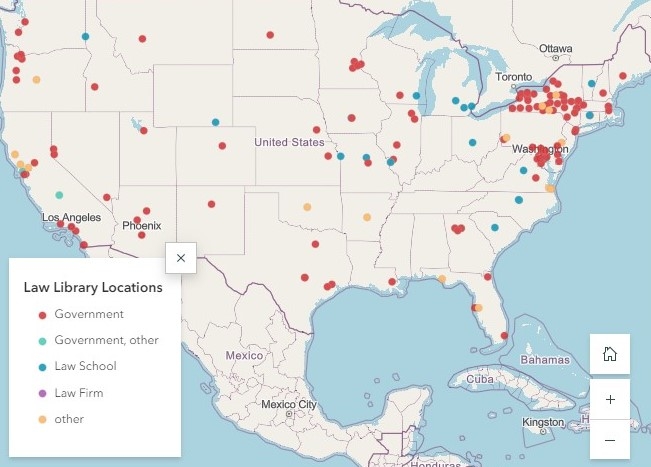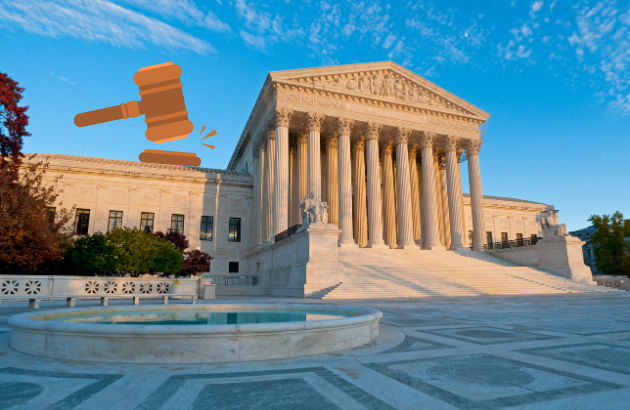Blog
Law Libraries Serving their Communities
A recent article titled How Law Libraries are Serving Self-Represented Litigants Across the Country caught my attention this week due to its informative and detailed analysis of law libraries serving the public across America.
This engaging survey gathers statistics from 158 law libraries. A number of interactive maps throughout the survey display compiled information about each library, including the different types of law libraries considered: libraries in the government, law schools, law firms, and some labeled as other (such as Jenkins). Information about each library's collections, technologies, research services, initiatives, and partnerships are also displayed through these interactive maps.

At Jenkins, Self-Represented Litigants can visit the library for $5 per day if interested in conducting their own legal research. While we cannot give legal advice or interpret legal materials, our librarians can recommend print and on-site digital resources, demonstrate how to search databases, and provide a list of legal aid organizations.

Take a look at How Law Libraries are Serving Self-Represented Litigants Across the Country to discover how other law libraries are serving their communities.
If you have any questions, feel free to Ask Us.




